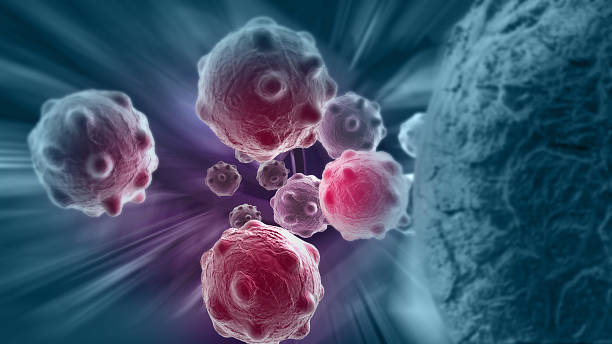Understanding the Basics: What Is Cancer and How Does It Develop?
Cancer is an evil enemy that poses a challenge to researchers and medical professionals globally due to its complex and multidimensional nature. With its wide range of manifestations and disastrous effects, it has an impact on millions of people across continents. There is still a great deal to learn about the complexity of cancer formation and progression, even with the amazing advances in medical science and technology. In search of novel treatments and approaches, researchers work nonstop to disentangle the complex mechanisms underlying this illness, exploring the molecular subtleties of tumor growth, metastasis, and treatment resistance.
The journey to understand cancer is marked by continuous exploration and discovery, driven by a continuous commitment to improve patient outcomes and quality of life. While significant progress has been made in elucidating the fundamental aspects of cancer biology, countless questions persist, prompting ongoing research endeavors and collaborative efforts across disciplines. With each breakthrough and revelation, the collective understanding of cancer deepens, paving the way for novel insights, interventions, and approaches to combat this relentless foe. As researchers and healthcare professionals unite in the fight against cancer, the quest for knowledge remains steadfast, offering hope for a future where the complexities of cancer are understood, conquered, and ultimately eradicated. In this comprehensive guide, we will explore the fundamentals of cancer, including its definition, causes, BR Healthcare cancer treatment, and the biological mechanisms involved in its formation.
What Is Cancer?
Cancer is a term used to describe a group of diseases characterized by the abnormal growth and proliferation of cells. In a healthy body, cells grow, divide, and die in a controlled manner as part of the natural process of tissue renewal and repair. However, cancer disrupts this delicate balance, leading to the uncontrolled growth and spread of malignant cells.
The development of cancer typically begins with a single abnormal cell that undergoes genetic mutations, causing it to proliferate uncontrollably. Over time, these abnormal cells accumulate, forming a mass of tissue known as a tumor. Not all tumors are cancerous; benign tumors are non-cancerous and do not spread to other parts of the body, whereas malignant tumors are cancerous and have the potential to invade surrounding tissues and metastasize to distant organs.
Causes of Cancer:
Cancer is a complex disease with multiple factors contributing to its development. While the exact cause of cancer can vary depending on the type and subtype, several common risk factors have been identified:
- Genetic Factors: Inherited genetic mutations can increase the risk of certain types of cancer. Individuals with a family history of cancer may have an increased susceptibility to developing the disease.
- Environmental Exposures: Exposure to carcinogens, such as tobacco smoke, ultraviolet radiation, and certain chemicals and pollutants, can damage DNA and increase the risk of cancer.
- Lifestyle Choices: Unhealthy lifestyle habits, such as smoking, excessive alcohol consumption, poor diet, and lack of physical activity, have been linked to an increased risk of cancer.
- Age: The risk of cancer generally increases with age, as cumulative exposure to environmental factors and genetic mutations over time can contribute to cellular damage and dysfunction.
- Immunodeficiency: Immunosuppression, whether due to medical conditions such as HIV/AIDS or immunosuppressive therapies, can impair the body’s ability to detect and eliminate cancerous cells, increasing the risk of cancer development.
Biological Mechanisms of Cancer Development:
At the cellular level, cancer is characterized by a series of hallmark traits that enable malignant cells to proliferate uncontrollably, evade cell death, and invade surrounding tissues. These hallmark traits are driven by genetic alterations and disruptions in cellular signaling pathways that regulate key cellular processes such as growth, proliferation, and apoptosis.
One of the hallmarks of cancer is sustained proliferative signaling, wherein cancer cells acquire mutations that activate growth-promoting signaling pathways, such as the Ras-MAPK and PI3K-Akt pathways, leading to uncontrolled cell division. Additionally, cancer cells often exhibit evasive mechanisms that enable them to evade apoptosis, or programmed cell death, allowing them to survive and proliferate despite genetic damage or cellular stress.
Another hallmark of cancer is the ability to induce angiogenesis, the process by which tumors stimulate the formation of new blood vessels to supply oxygen and nutrients. By promoting angiogenesis, cancer cells ensure their continued growth and survival, as well as facilitate the spread of tumor cells to distant sites via the bloodstream.
Furthermore, cancer cells can acquire invasive and metastatic properties, enabling them to breach the basement membrane and invade surrounding tissues. This process, known as metastasis, is a defining feature of malignant tumors and is responsible for the majority of cancer-related deaths.
Cancer is a complex disease characterized by the abnormal growth and proliferation of cells. While the exact causes and mechanisms of cancer development are still being elucidated, it is clear that a combination of genetic, environmental, and lifestyle factors contribute to its onset. By gaining a deeper understanding of the fundamentals of cancer biology, researchers and healthcare professionals can develop more effective strategies for prevention, early detection, and BR Healthcare cancer treatment, ultimately improving outcomes for patients affected by this devastating disease. If you are dealing with cancer and looking for the best treatment option available then BR Healthcare cancer treatment is your key to a healthy and happy life.

